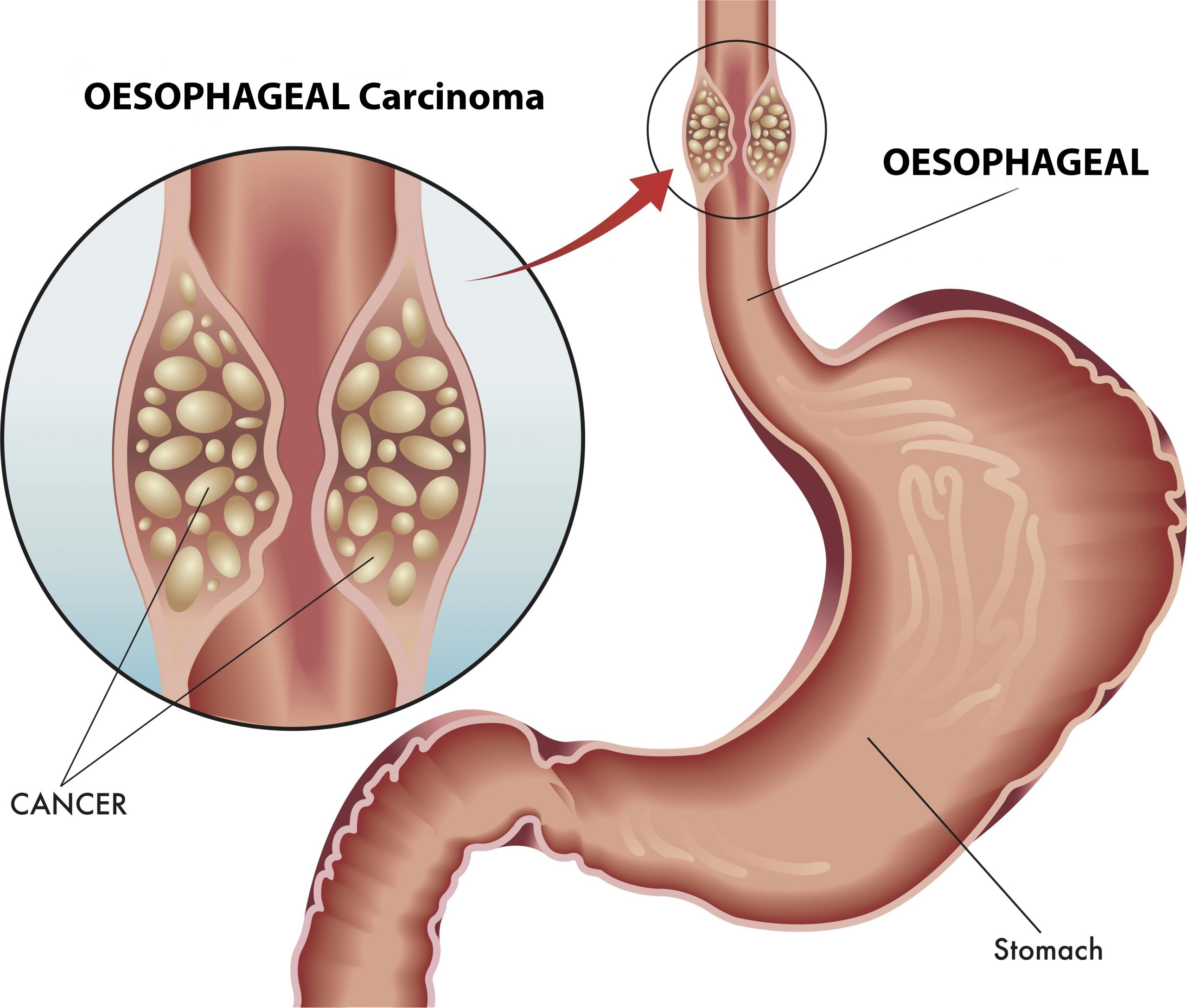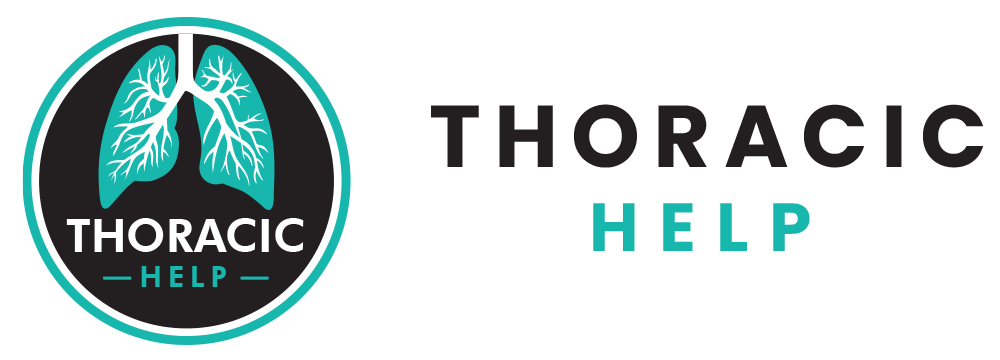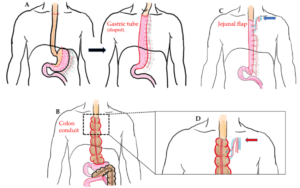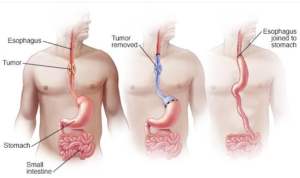02Apr
Navigating Esophageal Cancer: Diagnosis, Treatment and Recovery
by admin, 0 Comments

Esophageal Cancer is the 6th most common cause of cancer related mortality worldwide.
Esophageal Cancer is the 6th most common cause of cancer-related mortality worldwide. It poses significant challenges due to delayed diagnosis and complex treatment options. The disease usually manifests with difficulty in swallowing and unintentional weight loss.
The two main histological subtypes of esophageal cancer are squamous cell carcinoma (SCC) and Adenocarcinoma. Predisposing risk factors for SCC includes smoking, alcohol consumption, low socioeconomic status and nutritional deficiencies whereas Barrett’s esophagus, GERD and obesity are found to be linked with adenocarcinoma.
A thorough evaluation is paramount, often beginning with contrast esophagogram followed by endoscopy and biopsy to confirm the diagnosis. Furthermore, imaging modalities such as CT scan, endoscopic ultrasound (EUS) and PET scan are employed to determine the stage of the disease.
Once the disease stage has been determined, a multidisciplinary team approach is beneficial to devise an optimal treatment plan based on tumor location, stage, histological subtype, resectability, operability and nutritional status of the patient. This approach incorporates surgery, chemotherapy, radiotherapy and targeted therapies.
Surgical options includes :
- Ivor Lewis esophagectomy – stomach is used as a conduit and anastomosis is performed in the thorax via right thoracotomy.
- McKeown esophagectomy – a three incisions procedure where stomach is used as a conduit and anastomosis is done in the neck.
- Minimally invasive esophagectomy – utilizing laparoscopic and thoracoscopic techniques.
- Robotic minimally invasive esophagectomy
- Transhiatal esophagectomy
The choice of procedure is dependent on the tumor location and surgical expertise.
ONCOLOGICAL TREATMENT
Chemotherapy and radiotherapy is recommended based on the extent of disease, type of cancer and as a palliative option for those who are unfit for surgical intervention. Neoadjuvant and adjuvant chemotherapy along with surgical resection is recommended for adenocarcinoma whereas limited disease SCC can proceed directly to surgery. Thus, a multimodal approach based on TNM stage is crucial for the management of esophageal cancer.
Palliative procedures can be offered to those with metastatic disease or those who are medically unfit for surgical intervention. These includes:
- Palliative/definitive chemoradiation
- Self expanding esophageal stents
- Laser ablation
- Photodynamic therapy
- Biological and targeted therapies
In conclusion, managing esophageal cancer requires a comprehensive approach focusing on early detection, timely intervention and tailored treatment plans along with supportive care to improve outcomes and enhance quality of life.


